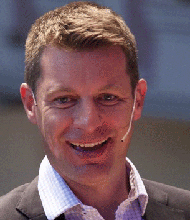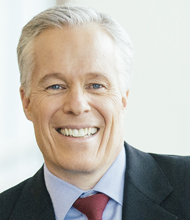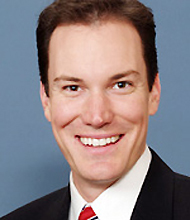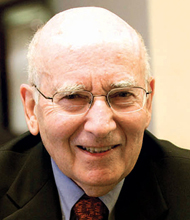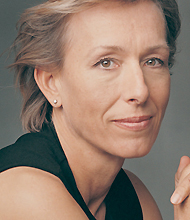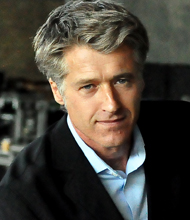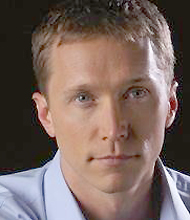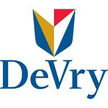| TRAVELS FROM |
|
SPEAKING FEE RANGE ** Please note that while this speaker’s specific speaking fee falls within the range posted above (for Continental U.S. based events), fees are subject to change. For current fee information or international event fees (which are generally 50-75% more than U.S based event fees), please contact us. $30,000 to $50,000 |
|
BOOK VIVEK WADHWA speakers@coreagency.com |
| TRAVELS FROM |
|
SPEAKING FEE RANGE* $30,000 to $50,000 |
|
Book Vivek Wadhwa speakers@coreagency.com |
- Influential technology entrepreneur who inspires listeners to think bigger and take advantage of the amazing opportunities that advancing technologies bring.
- Author of The Immigrant Exodus: Why America Is Losing the Global Race to Capture Entrepreneurial Talent, named by The Economist as a Book of the Year.
- Founder of Relativity Technologies, which was named one of the 25 coolest companies in the world by Fortune magazine.
- Named by Forbes.com as a “Leader of Tomorrow” and one of Time magazine's “Top 40 Most Influential Minds in Tech."
Vivek Wadhwa is a Distinguished Fellow at Carnegie Mellon University’s College of Engineering and a Director of Research at Duke University’s Pratt School of Engineering. He is a globally syndicated columnist for The Washington Post and author of The Immigrant Exodus: Why America Is Losing the Global Race to Capture Entrepreneurial Talent, which was named by The Economist as a Book of the Year of 2012, and of Innovating Women: The Changing Face of Technology, which documents the struggles and triumphs of women in technology. Wadhwa has held appointments at Stanford Law School, Harvard Law School, and Emory University and is a faculty member at Singularity University.
Wadhwa is based in Silicon Valley and researches exponentially advancing technologies that are soon going to change our world. These advances—in fields such as robotics, artificial intelligence, computing, synthetic biology, 3D printing, medicine, and nano-materials—are making it possible for small teams to do what was once possible only for governments and large corporations to do: solve the grand challenges in education, water, food, shelter, health, and security. They will also disrupt industries and create many new policy, law, and ethics issues.
In 2012, the U.S. Government awarded Wadhwa distinguished recognition as an “Outstanding American by Choice,” for his “commitment to this country and to the common civic values that unite us as Americans.” He was also named one of the world’s “Top 100 Global Thinkers” by Foreign Policy magazine in that year; in June 2013, he was on TIME magazine’s list of “Tech 40,” one of forty of the most influential minds in tech; and in September 2015, he was second on a list of “ten men worth emulating” in The Financial Times.
Wadhwa teaches subjects such as technology, industry disruption, entrepreneurship, and public policy; researches the policy, law, and ethics issues of exponential technologies; helps prepare students for the real world; and advises several governments. In addition to being a columnist for The Washington Post, he is a contributor to VentureBeat, The Huffington Post, LinkedIn Influencers blog, and the American Society of Engineering Education’s Prism magazine. Prior to joining academia in 2005, Wadhwa founded two software companies.
 I always have people tell me that my talk changed their way of thinking and made them realize what an amazing period we live in. I always have people tell me that my talk changed their way of thinking and made them realize what an amazing period we live in. | |
| |
 | What do you want people to learn/take away from your presentations? |
 | I always have people tell me that my talk changed their way of thinking and made them realize what an amazing period we live in. They begin to realize the opportunities and risks of advancing technologies. They begin to see the world in a different way. |
 | What kind of special prep work do you do prior to an event? How do you prepare for your speaking engagements? |
 | In all, I have about 15 hours of speaking content from the two-day workshops that I conduct for executives of billion dollar companies and the university classes I teach. I usually speak to the organizers of the events to learn what their objectives are and the backgrounds of the people who will be in the event and tailor my presentation to their needs. No two talks I give are ever the same because they are geared to the audience. |
| There is nothing more rewarding than inspiring and motivating other people to work towards making the world a better place. | |
| |
 | Have you had any particularly memorable speaking engagements / unusual situations arise while on the road? |
 | I always have people lined up after my talks and get emails from the participants telling me how I have opened their minds and changed their outlooks. Parents always ask how they can educate their children on what they have learned. I have had CEOs tell me that my talks or workshops have caused them to change their business strategy. Entrepreneurs thank me for showing them how to think bigger.
This is what makes it worthwhile for me to be doing all this. This is why I give talks and why I teach—because I can have a positive impact on people. There is nothing more rewarding than inspiring and motivating other people to work towards making the world a better place. |
 | What types of audiences would most benefit from your message? |
 | My focus right now is business executives and students. That is because they can act on what they learn and improve their businesses or career prospects, but I can also positively impact many other audiences as well. |
 | Which of your keynote speaking topics are your favorites and why? |
 | My favorite talks are about using technology to make the world a better place. Yes, I teach business executives how to survive disruptions and rethink the way they innovate, but I have more fun teaching entrepreneurs how to solve global problems and save the world! |
| That is the beauty of teaching—you learn by sharing knowledge. | |
| |
 | What inspired you to start doing speaking engagements? |
 | I used to be a technology entrepreneur and founded two companies. We took the first one public and built very successful businesses. Then I had a massive heart attack because I had burnt myself out. I decided to spend the rest of my life learning, teaching, and helping others. That is why I joined Duke University, and later Harvard, UC-Berkeley, Emory, Stanford, and Singularity University. (Yes, I know I may have been asking for another heart attack!).
Most of my talks for the first few years were in academia and then I started receiving requests from business executives to speak at their events. I started doing this about two years ago and have found this very rewarding—because I can have a positive impact on their business strategies and learn a lot from them. That is the beauty of teaching—you learn by sharing knowledge. |
 | How do you keep your audience engaged and actively listening during your keynotes? Do you use case studies, personal stories and/or in your speeches? |
 | I speak to the audience as if they were my friends and we were talking one on one. I don’t give canned speeches; instead, I focus on building bonds with the audience and teaching what is of interest to them. My job, when I am on-stage, is to teach and inspire. |
 | What are some of the successes you've helped clients achieve? |
 | Nearly every group I have spoken in front of has told me that my lectures were educational, inspiring, and motivational. I know that I have helped them think bigger and take advantage of the amazing opportunities that advancing technologies bring. |
As an academic, researcher, writer, and entrepreneur with interests in globalization, technology, and the future, Vivek Wadhwa is available to speak on a variety of topics. Examples of talks include “Why Innovation Isn’t Dead: A Look at Our Technology Future,” an in-depth look at exponentially advancing fields such as robotics, A.I., computing, synthetic biology, 3D printing, medicine, and nano-materials; “Disrupted Industries and Trillion-Dollar Opportunities,” which considers exponentially advancing technologies and disruptions—and therefore creation of opportunity and new industries—that will follow; and “What Makes an Entrepreneur and How Can We Make More of Them?”, a meditation on entrepreneurship—what it really looks like, not Hollywood’s Silicon Valley powerhouse version.
Wadhwa knows what he is talking about, and as a seasoned speaker, knows how to deliver to an audience. Bringing with him years of expertise and plenty of humor and stories, audiences will leave enlightened, informed, and inspired.
Why Innovation Isn’t Dead: A Look at Our Technology Future
There is a lot of pessimism about the future. Some people argue that, other than advances in computer-related fields, technological progress has actually stalled: the internal-combustion engine, invented in 1876, still rules our highways; the cancer death rate has barely changed since 1971; today’s Internet was actually designed in the 1960s. There are fears that world wars will break out over water and energy shortages and that our standards of living will fall. These perceptions couldn’t be further from the truth.
Vivek Wadhwa will discuss why he believes that this will be the most innovative decade in human history. He will explain how exponentially advancing technologies—in fields such as robotics, A.I., computing, synthetic biology, 3D printing, medicine, and nanomaterials—will enable us to start solving humanity’s grand challenges.
Disrupted Industries and Trillion-Dollar Opportunities
Not long ago, you could see your competition coming. Management guru Clayton Christensen coined the term “disruptive innovation” to describe how competition worked: a new entrant attacked a market leader by launching low-end, low-priced products and then relentlessly improving them. Now Christensen’s frameworks have themselves been disrupted—because you can no longer see the competition coming.
Technologies are no longer progressing in a predictable linear fashion, but are advancing exponentially and converging. Fields such as computing, medicine, artificial intelligence, 3D printing, robotics, nanomaterials, and synthetic biology are advancing simultaneously, and combining these allows one industry to rapidly disrupt another—before market leaders even know what has hit them.
Practically every industry will be disrupted over the next few years, including finance, insurance, health care, manufacturing, transportation, education, I.T. services, and communications. Very few of today’s Fortune 500 companies will be on that list by the early 2020s. They will go the way of Blockbuster, Kodak, RIM, Compaq, and Nokia.
This is not all bad news, because disruption creates opportunities. New industries will emerge, and companies that lead the change will have the trillion-dollar market capitalizations.
The Next Wave Globalization: China, India and How the U.S. Can Keep Its Competitive Edge in the Midst of Globalized Innovation
Academics, policy makers and business executives say that the U.S. is falling behind in math and science education and is losing its global advantage because China and India graduate more engineers. They cite poor test results, declining international rankings and decreasing enrollment in the hard sciences. They believe the remedy for U.S. competitiveness is to graduate more engineers and scientists.
America has reason to worry, but the problems aren’t its graduation rates or international rankings. China and India’s advantages are much different than we understand. They may graduate large numbers of engineers, but the quality of the education is so poor that they have to be retrained when they start work. To continue to lead, America has to focus on its core advantages and not try to be like its new global competitors.
What Makes an Entrepreneur and How Can We Make More of Them?
The legends of Bill Gates, Steve Jobs, Mark Zuckerberg and other high-tech entrepreneurs have fed a stereotypical vision of innovation in America: Mix a brainy college dropout, a garage-incubated idea and a powerful venture capitalist, stir well, and you get the latest Silicon Valley powerhouse. That’s Hollywood’s version of technological innovation; unfortunately, it’s also the one that venture capitalists try to fund and government planners seek to replicate. But these individuals are not America’s typical entrepreneurs and that is not the way to build innovation systems.

In this interview, Vivek Wadhwa discusses:

 VIDEO
VIDEO PROGRAMS
PROGRAMS SPEAKING
SPEAKING INTERVIEW
INTERVIEW




